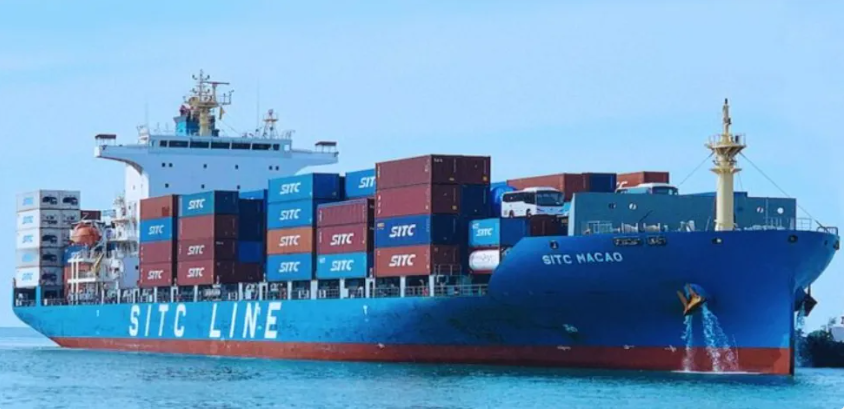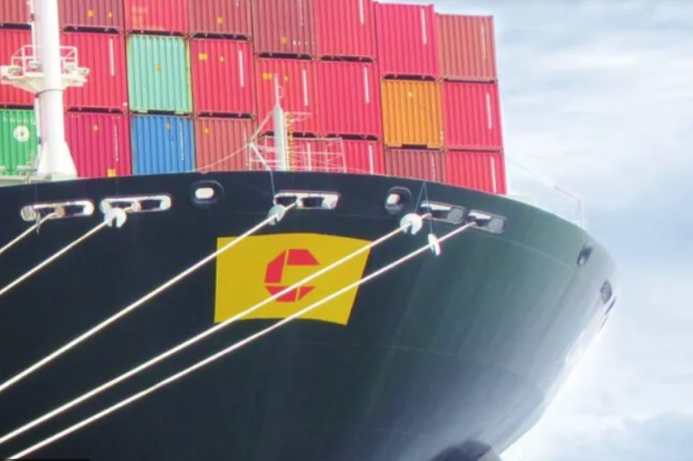Recently, UK media reported that a proposed plan by the Chittagong Port Authority (CPA) to ban 15 vessels from berthing has stirred significant controversy in Bangladesh’s maritime sector. The move has triggered strong opposition from local cargo owners and various shipping associations, leading to a heated debate over how best to tackle the port’s congestion problem.
Vessel Ban Proposal: A Desperate Move to Ease Congestion?
The CPA's plan to prohibit certain vessels from docking comes in response to the increasingly severe congestion and prolonged vessel waiting times at the port. In recent years, Chittagong Port has seen a continuous rise in cargo throughput due to booming international trade, placing mounting pressure on port operations. According to planning documents, the 15 vessels under the proposed ban account for about 13% of the total number of vessels currently calling at the port. Although this may appear to be a small portion, it could potentially trigger a ripple effect across the complex port operation system.
The CPA initially appointed the Bangladesh Shipping Agents Association (BSAA) to determine which vessels should be subject to the ban. However, the association declined the task, highlighting their skepticism about the plan and reflecting the broader, more complex considerations and interests at play within the industry.
Shipping Agents: Address the Root Cause—Operational Efficiency Is Key
“The port authority should focus on improving operational efficiency and upgrading equipment,” said Syed Mohammad Arif, Chairman of the BSAA, in an interview with a leading news outlet. He pointed out that the root of the current problems lies in operational inefficiencies and outdated infrastructure. Tackling these issues is essential to reduce vessel turnaround time and prevent congestion at anchorage.
Arif likened the proposed ban to an overreaction, saying, “We can’t just cut off the head to cure a headache. We need effective and practical solutions.” He further emphasized that many ports around the world face similar challenges, noting, “Are other ports solving congestion by reducing the number of ships? Clearly, banning vessels is not a viable long-term strategy.”
He proposed several measures for improvement, including ensuring a steady supply of trailers, which play a crucial role in the internal transport of cargo within the port. Arif also stressed the need to improve the traffic conditions around the port, as congestion on access roads significantly impacts cargo movement and increases logistics costs. Additionally, he called for enhancements in port equipment, materials handling, and storage facilities to increase the port’s capacity to accommodate high-volume and larger vessels. These suggestions, he argued, would offer a more scientific and sustainable path forward for the port’s development.
Chittagong Port Authority: Ban Necessary to Maintain Basic Operations
Despite the criticism, the Chittagong Port Authority maintains a different perspective. The number of arriving vessels rose from 96 to 118 since the beginning of the year, making congestion a more urgent issue. According to Enamul Karim, Transport Manager at CPA, when 96 vessels were calling at the port, the average anchorage waiting time was 1–2 days, with peaks seeing up to seven or eight vessels waiting simultaneously. The situation has since worsened with the increased number of arrivals.
Karim stated that allowing “temporary berthing” of vessels is a key factor contributing to the current congestion. With the port operating near full capacity, additional temporary dockings have only intensified the issue. From the authority's standpoint, banning a portion of the vessels is a necessary measure to preserve basic operational order and prevent further deterioration.
Industry Support: Ensuring Trade Continuity Is Crucial
Enamul Huq, Director of the Bangladesh Container Shipping Association, voiced support for the CPA’s position. As Chittagong Port is a vital trade hub for Bangladesh, its operational efficiency has a direct impact on the nation’s trade flows. If vessels are unable to unload cargo in a timely manner, it could lead to cargo backlogs, shipment delays, and broader disruption to the country’s trade system.
Is the Ban an Effective Solution—or a Potential Disruption?
Whether the proposed vessel ban is an effective means of alleviating congestion—or a move that may hinder port operations and trade—remains a matter of debate.
From a broader perspective, Chittagong’s congestion problem is not unique. Ports worldwide face similar challenges amid rapid trade growth. Various international organizations, maritime experts, and research institutions have been actively exploring practical solutions to port congestion. For instance, some ports have implemented advanced digital management systems to optimize cargo handling and scheduling, significantly improving operational efficiency. Others have enhanced infrastructure around the ports to streamline logistics and ease access road traffic.
For Chittagong Port, drawing lessons from these successful case studies—and tailoring solutions to its own realities—may offer a more scientific, reasonable, and sustainable path toward resolving its congestion issues.

Last
SITC Continues Fleet Expansion with Order of Four 2,700 TEU Vessels from Huanghai Shipbuilding
SITC International Holdings Co., Ltd. is continuing to expand its fleet by ordering four new 2,700 TEU container ships from Huangh

Next
Greek Shipowner Costamare Returns to Newbuilding Market with 4-Vessel Deal
Greek shipowner Costamare is the latest liner-affiliated company to re-enter the newbuilding market, revealing an order for four 3
